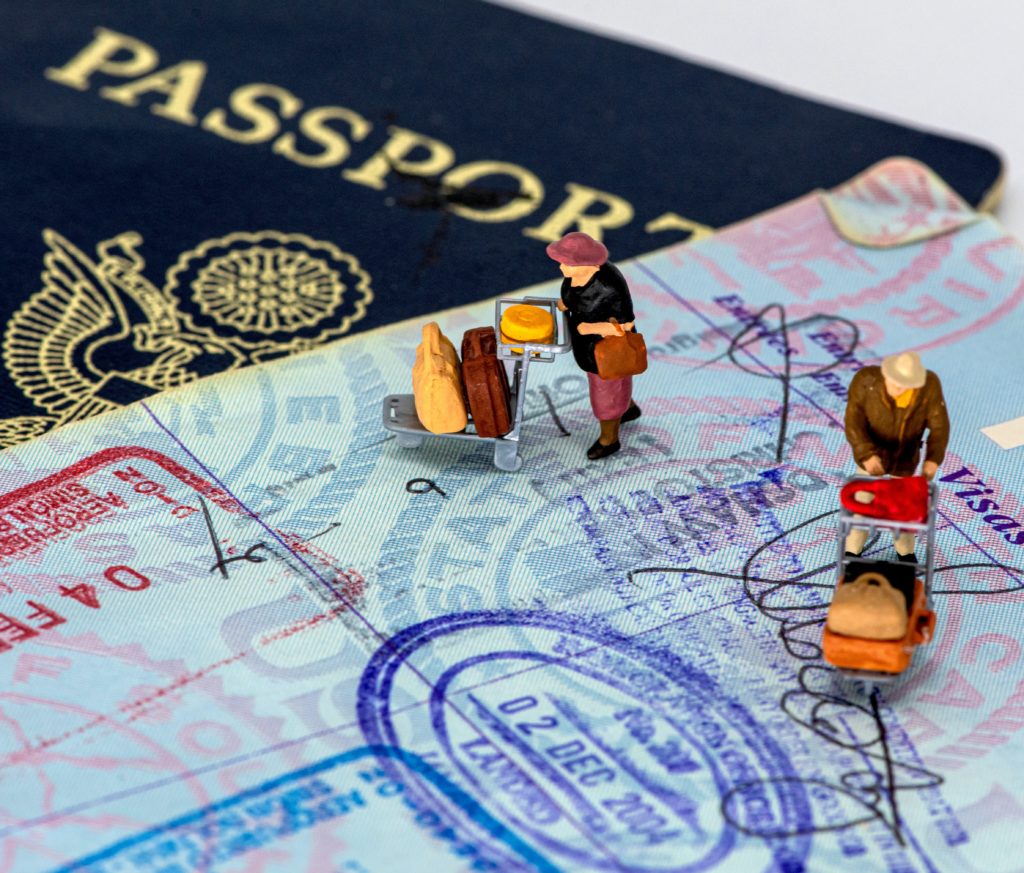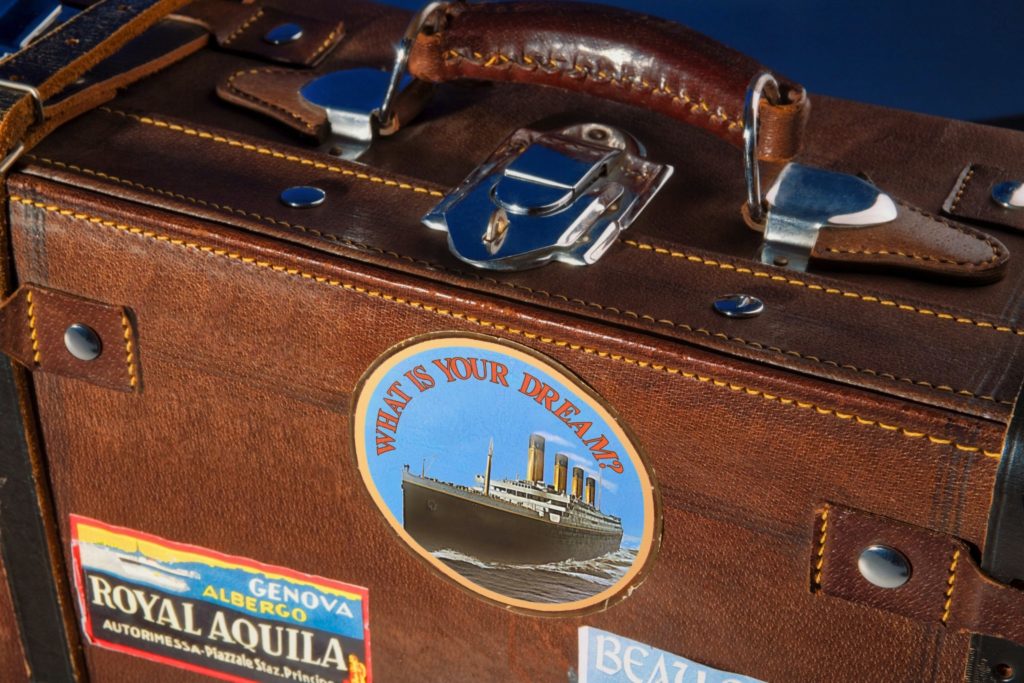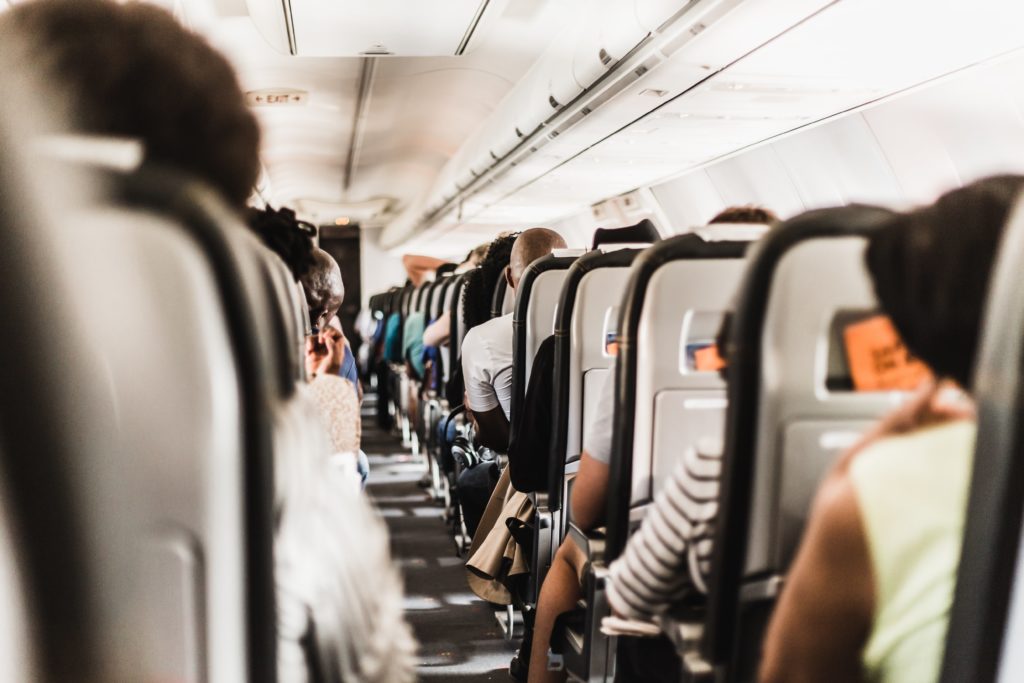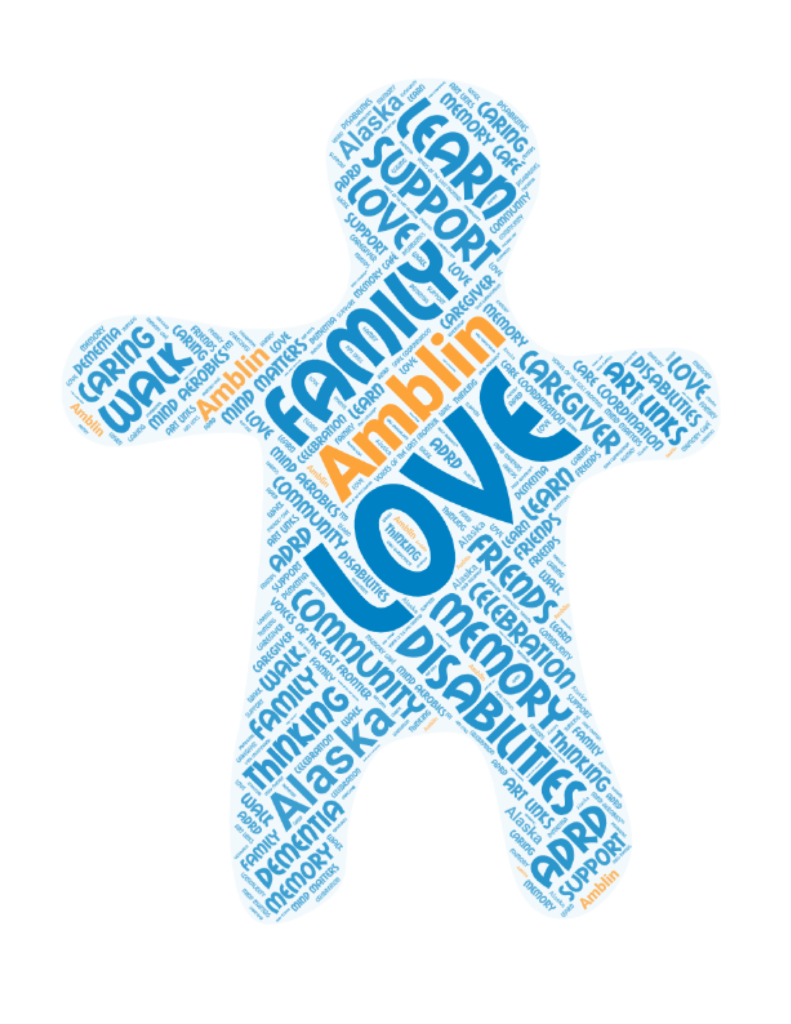Traveling with Someone with Dementia

At some point, traveling with your loved one who has dementia may not be possible. Talk with your doctor and service providers as well as your family prior to planning a trip.
These tips will make traveling with someone who is living with dementia a little easier.
Keep things as familiar as possible
Travel during the day when you are normally awake. Keep mealtimes as close to normal as possible. Make sure your loved one has items that are familiar such as a favorite pair of pajamas or a favorite tea before bed. Small or unfamiliar changes can be overwhelming for someone living with dementia, so preserve the person’s routineas much as possible.
Be prepared
Be sure to carry your Power of Attorney (POA) if you have one. Get plenty of rest before the trip. Allow extra time for everything… bathing, dressing, packing, getting to the airport. Wear comfortable clothing. Bring a brief medical history and enough medication for your trip. Bring a change of clothing in case of accidents. Carry hand wipes for any spills. Avoid caffeine. Bring along cards that indicate your loved has dementia to hand out if needed.
Identification needs

Be sure your loved one has a copy of your itinerary and your contact information on their person at all times in case you and your loved one get separated. Consider an id bracelet or necklace with alert information.
Create a travel bag

Include items that are meaningful and familiar to your loved one that you use to distract or redirect at home; items of comfort and/or of entertainment, such as a book of pictures or poems, a stuffed animal, airline-approved snacks, a scarf, or a small photo album.
Plan your itinerary well in advance
Make sure you have plenty of time between layovers if layovers are needed. Make sure family and friends know what to expect and what helps your loved one feel calm and safe. Minimize time spent in large, noisy groups if possible.
Be realistic
Carefully assess what your loved one’s limitations and strengths are as well as your own. If possible, have a travel companion to accompany you and your loved one. Consult with your physician and see if he or she recommends a medication for the trip.
Limit the length of a plane or car ride
If your trip is a long one, a layover for a good night’s sleep may be needed to stay on normal time. Sleep deprivation can cause disorientation and confusion which can then lead to agitation. Travel during normal “awake” hours, as much as possible.
Driving

If you are driving and the person with dementia becomes agitated, pull over. Do not try to calm him or her while you are driving. He or she may become more agitated and try to leave a moving car if judgment is impaired. Take regular breaks on road trips for food, bathroom visits, and rest.
Air Travel

If you are traveling by air notify the airline when making your reservations to request gate-to-gate assistance. Be prepared to advocate for needed additional accommodations. Consider paying for the Transportation Security Administration (TSA) Pre-Check. Try to avoid layovers in busy airports and use non-stop flights. TSA offers assistance with the screening process to air travelers with certain medical conditions, including dementia-related illnesses; contact their TSA Cares Helpline at least 72 hours prior to your flight to learn more.
If your loved one is restless, plan to sit in the aisle seat so you are aware if he/she tries to get up. Try to be seated near a restroom. Bring all medications with you on the plane, not in your checked luggage. Talk with attendants about your loved one’s condition.
Hotels

If you are staying in a hotel, you may want to notify hotel staff that you are traveling with a loved one who is living with dementia. This would be a good time to use the small cards alerting staff about your loved one.
Request a childproof doorknob cover or see if the hotel has a latch on the door if your loved one wanders. Request a room away from conference rooms or elevators where things tend to be noisier.
Have a backup plan
Recognize when you or your loved one is becoming confused or frustrated. Consider a time out, take some deep breaths, and modify the activities you are doing.
It may be necessary to get some rest. Remember that you can shorten your trip or change your plans if needed. Families and friends with questions about traveling with someone who has a dementia-related illness can speak with a dementia education specialist for guidance.
How we can help
- Individual and family consultations.
- Caregiver support groups by telephone or video conference (a great way to learn about local resources)
- Community Resource Guides or setup a consultation for further community referrals.
- Brochures and handouts
- Lending library and recommended books/videos/websites
- Educational programs, seminars and state-wide webinars on relieving stress for caregivers, family consultations, financial and legal planning, and Savvy Caregiving and more.
- Printable Fact Sheets
- Care coordination services
- Assistance to find respite services, chore services, or consumer-directed personal care attendant services.
- Mini-grant funds for items that will help your loved one
Related Resources
Alzheimer’s and Dementia Info Pages
- 10 Steps in Planning for the Future
- 10 Warning Signs
- About Alzheimer’s Disease
- About ADRD
- Activities for Adults with Dementia
- Assisted Living Homes
- Caregiver Checklist
- Combativeness
- Communication Tips
- Diagnosis
- Dining & Dementia
- Driving and Dementia
- Introducing Services
- Treatment & Medications
- Medications & Dementia
- Normal Aging vs. Alzheimer’s
- Prevention
- Strategies for Wandering
- Stages and Symptoms
- Talking with Children about Alzheimer’s
- Traveling with Alzheimer’s
 Make a Payment
Make a Payment



